People, culture, society and politics
Our team of academic experts seeks to identify key opportunities and use these to harness the potential of our society, both at a local and international level. Learn more about our team below.
Dr Greg Acciaioli
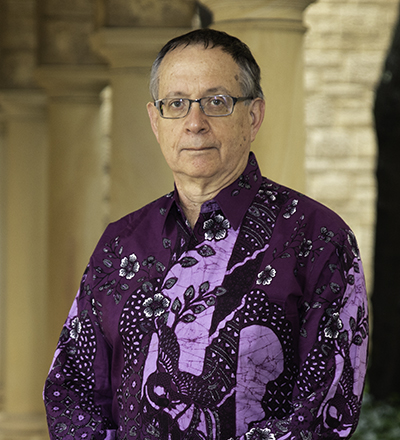 Dr Greg Acciaioli is an environmental anthropologist who teaches in Anthropology and Sociology, International Development and Asian Studies at The University of Western Australia.
Dr Greg Acciaioli is an environmental anthropologist who teaches in Anthropology and Sociology, International Development and Asian Studies at The University of Western Australia.
He has engaged in academic research on disputes over national parks in both Indonesia and Malaysia, as well as such topics as the relationship of the Indigenous peoples’ movement to environmental claims and sectarian conflict, environmental education, participatory development programs, agricultural development, rice intensification, food security and food sovereignty, the social effects of oil palm plantation proliferation, migration and ethnic interaction, statelessness, and State perceptions of minorities and other marginal peoples in Indonesia.
Dr Katie Attwell
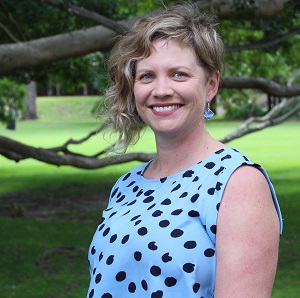 Dr Katie Attwell is a Senior Lecturer in Political Science and International Relations at The University of Western Australia, and an Honorary Research Fellow with the Wesfarmers Centre of Vaccines and Infectious Diseases, Telethon Kids Institute. Katie is interested in the intersection of policy, identity and behaviour as they pertain to health consumers, healthcare providers and governance. In 2014 she researched, designed, delivered and evaluated the internationally recognised public health campaign, “I Immunise”.
Dr Katie Attwell is a Senior Lecturer in Political Science and International Relations at The University of Western Australia, and an Honorary Research Fellow with the Wesfarmers Centre of Vaccines and Infectious Diseases, Telethon Kids Institute. Katie is interested in the intersection of policy, identity and behaviour as they pertain to health consumers, healthcare providers and governance. In 2014 she researched, designed, delivered and evaluated the internationally recognised public health campaign, “I Immunise”.
Katie's current projects include analysing governance strategies for addressing vaccine refusal, conceptualising the role of group identity in vaccination decision-making, and designing and piloting strategies for conversational interventions with pregnant women regarding vaccination of themselves and their babies.
Professor Loretta Baldassar
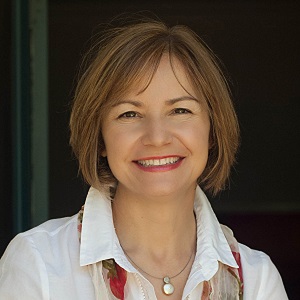 Professor Loretta Baldassar is a migration scholar and researcher in UWA’s Anthropology and Sociology discipline group. Loretta is currently working on three interconnected research projects: Ageing and New Media; Youth Mobilities; and Student Internationalisation. These projects examine the impact of mobility on family and support networks, with a special focus on the role of new technologies in staying connected. Loretta is a co-founder of the Migration, Mobilities and Belonging research cluster at UWA, Vice President of the International Sociological Association Migration Research Committee and a regional editor for the journal Global Networks.
Professor Loretta Baldassar is a migration scholar and researcher in UWA’s Anthropology and Sociology discipline group. Loretta is currently working on three interconnected research projects: Ageing and New Media; Youth Mobilities; and Student Internationalisation. These projects examine the impact of mobility on family and support networks, with a special focus on the role of new technologies in staying connected. Loretta is a co-founder of the Migration, Mobilities and Belonging research cluster at UWA, Vice President of the International Sociological Association Migration Research Committee and a regional editor for the journal Global Networks.
Loretta collaborates on projects, consultancies and evaluations with local government, service providers and community groups. Her research team helps to combat social isolation and improve digital literacy for older people, particularly people from culturally and linguistically diverse backgrounds.
Her most recent publications can be found below,
Belmont Stories and Skills Evaluation Report 2018 (PDF 3.15MB)
Professor Peter J Dean
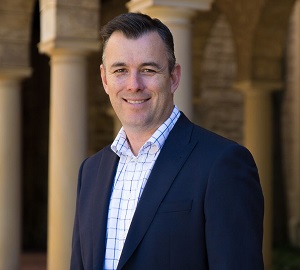 Professor Peter J Dean is a strategic studies scholar, Pro Vice-Chancellor Education at UWA and a Senior Fellow at the Perth USAsia Centre. His research focuses on Australian defence policy with an emphasis on the Australian Defence Force, military operations, strategic policy, the ANZUS alliance and US and Australian strategy in the Indo-Pacific. Peter is the recipient of a Department of Foreign Affairs and Trade Fulbright Award and a Commonwealth Government Endeavour Research Fellowship for public policy focused research on the US-Australian Alliance. He has been a Senior Fellow at the Center for Australian and New Zealand Studies at Georgetown University, Washington DC, and an Adjunct Fellow in the Pacific Partners Initiative at the Center for Strategic and International Studies in Washington DC.
Professor Peter J Dean is a strategic studies scholar, Pro Vice-Chancellor Education at UWA and a Senior Fellow at the Perth USAsia Centre. His research focuses on Australian defence policy with an emphasis on the Australian Defence Force, military operations, strategic policy, the ANZUS alliance and US and Australian strategy in the Indo-Pacific. Peter is the recipient of a Department of Foreign Affairs and Trade Fulbright Award and a Commonwealth Government Endeavour Research Fellowship for public policy focused research on the US-Australian Alliance. He has been a Senior Fellow at the Center for Australian and New Zealand Studies at Georgetown University, Washington DC, and an Adjunct Fellow in the Pacific Partners Initiative at the Center for Strategic and International Studies in Washington DC.
Dr Judy Fisher
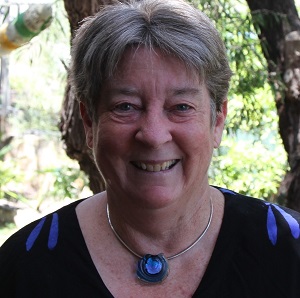 Dr Judy Fisher is Lead Expert for the International Union for the Conservation of Nature, Commission on Ecosystem Management Thematic Group Ecosystems and Invasive Species, which works with experts from 50 countries to implement a holistic approach to identify and respond to the negative impacts which invasive species may have on food security, food production, biodiversity, livelihoods, human health and wellbeing, in terrestrial, aquatic and marine ecosystems.
Dr Judy Fisher is Lead Expert for the International Union for the Conservation of Nature, Commission on Ecosystem Management Thematic Group Ecosystems and Invasive Species, which works with experts from 50 countries to implement a holistic approach to identify and respond to the negative impacts which invasive species may have on food security, food production, biodiversity, livelihoods, human health and wellbeing, in terrestrial, aquatic and marine ecosystems.
Judy has been elected by 130 governments to the 25 member IPBES Multidisciplinary Expert Panel. She is also Co-Chair of the IPBES Indigenous and Local Knowledge Task Force, which works to incorporate indigenous traditional knowledge and local knowledge into all IPBES activities.
Professor Paul Flatau
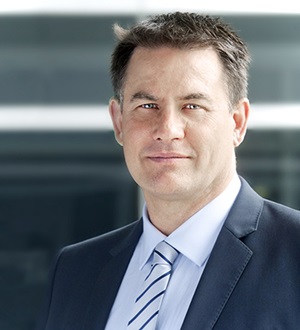 Professor Paul Flatau is the Director of the Centre for Social Impact at the University of Western Australia (CSI UWA). Over the past decade he has led a number of major projects to significantly increase our knowledge of homelessness and the role of impact investment in addressing social issues.
Professor Paul Flatau is the Director of the Centre for Social Impact at the University of Western Australia (CSI UWA). Over the past decade he has led a number of major projects to significantly increase our knowledge of homelessness and the role of impact investment in addressing social issues.
Professor Flatau currently leads a five-year research program, Supporting Development and Growth in the Community Sector in Western Australia. Funded by the Bankwest Foundation, it examines outcomes-measurement in the WA community sector.
Associate Professor Farida Fozdar

Associate Professor Farida Fozdar co-founded the Migration, Mobilities and Belonging research cluster at UWA, a group that undertakes research and holds conferences and symposiums on migration and diversity-related issues.
Farida uses qualitative and quantitative methods to understand the ways in which racial, ethnic, national and religious identities are constructed, issues around refugee and migrant settlement, and questions of cultural diversity. Farida undertakes social research consultancies including evaluating programs to assist migrants and refugees with re-settlement.
Professor David Gilchrist
 Professor David Gilchrist is a chartered accountant and economic historian. He has worked in senior roles in the public, human services and commercial sectors in Australia and internationally. His research and teaching focus on public sector governance, financial management and reporting, as well as human services delivery and sustainability.
David has advised all levels of government in Australia. He is a principal author of the seminal report “Australian Charities 2013” for the Australian Government and co-author of the forthcoming book “Public Sector Accounting, Governance and Accountability: Experiences of Australia and New Zealand” to be published by Routledge.
Professor David Gilchrist is a chartered accountant and economic historian. He has worked in senior roles in the public, human services and commercial sectors in Australia and internationally. His research and teaching focus on public sector governance, financial management and reporting, as well as human services delivery and sustainability.
David has advised all levels of government in Australia. He is a principal author of the seminal report “Australian Charities 2013” for the Australian Government and co-author of the forthcoming book “Public Sector Accounting, Governance and Accountability: Experiences of Australia and New Zealand” to be published by Routledge.
Dr Caleb Goods
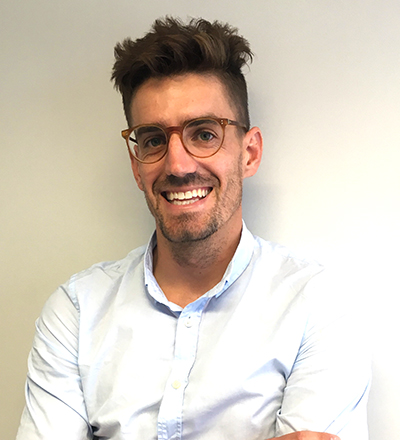 Dr Caleb Goods is a Lecturer of Management and Organisations in The University of Western Australia Business School. His research focuses on the ‘gigification’ of work, work organised via apps like Uber or Deliveroo. The findings of Caleb’s research have important implications for a range of public policy areas, such as the future of work, superannuation, taxation, immigration, income support and industrial relations.
Dr Caleb Goods is a Lecturer of Management and Organisations in The University of Western Australia Business School. His research focuses on the ‘gigification’ of work, work organised via apps like Uber or Deliveroo. The findings of Caleb’s research have important implications for a range of public policy areas, such as the future of work, superannuation, taxation, immigration, income support and industrial relations.
His second major research area focuses on transitioning the world of work from a high-carbon economy to a low-carbon world and asks whether this is a just transition? His 2015 book Green Auto Jobs critically examined the Rudd Labor government’s green car policy and its impacts.
Professor Fiona Haslam McKenzie
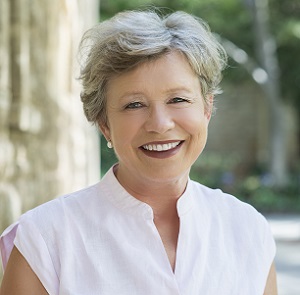 Professor Fiona Haslam McKenzie has extensive experience in population and socioeconomic change, housing, regional economic development and analysis of remote, regional and urban socioeconomic indicators. She has published widely and undertaken work for the corporate and small business sectors both nationally and in Western Australia, has conducted work for all three tiers of government, and since 2015 has been co-director of the Centre for Regional Development at The University of Western Australia.
Professor Fiona Haslam McKenzie has extensive experience in population and socioeconomic change, housing, regional economic development and analysis of remote, regional and urban socioeconomic indicators. She has published widely and undertaken work for the corporate and small business sectors both nationally and in Western Australia, has conducted work for all three tiers of government, and since 2015 has been co-director of the Centre for Regional Development at The University of Western Australia.
Fiona is currently researching the socioeconomic impact of different workforce arrangements for the mining industry and uneven economic development in Western Australia, focusing on the key issues of competitiveness, resilience and spatial integration.
Dr Huong Le
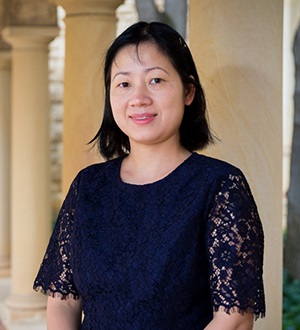 Dr Huong Le completed her PhD in Economics from the Australian National University and possesses strong analytical and advance econometric modelling skills.
Dr Huong Le completed her PhD in Economics from the Australian National University and possesses strong analytical and advance econometric modelling skills.
Her research interests include applied econometrics and economics, with particular focus on health economics, development economics and policy evaluations. Her research has been published in peer-reviewed high ranking journals such as Health Economics, American Journal of Health Economics, Review of Income and Wealth, IZA Journal of Labour Economics, Journal of Asian Economics and Trends and Issues in Crime and Criminal Justice. Her current research focus is using large longitudinal linked data sets to analyse socio-economics issues with focus on impact evaluations, child health and development and intergenerational transmission of health and human capital.
Professor Julie Ann Lee
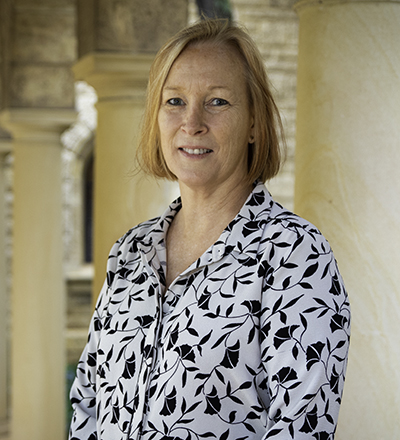 Professor Julie Lee is a Professor of Marketing at the UWA Business School. Julie’s research focuses on human and cultural values and the way they are expressed individually and in society. Her interests extend to the theory, measurement and application of values across the human lifespan. To enable this research, she worked with collaborators to develop and publish several innovative and effective scales designed to measure values in adults and young children. The most recent is featured on The Values Project.
Professor Julie Lee is a Professor of Marketing at the UWA Business School. Julie’s research focuses on human and cultural values and the way they are expressed individually and in society. Her interests extend to the theory, measurement and application of values across the human lifespan. To enable this research, she worked with collaborators to develop and publish several innovative and effective scales designed to measure values in adults and young children. The most recent is featured on The Values Project.
Julie is currently Chief Investigator on two Australian Research Centre (ARC) Linkage Projects, involving the study of values.
Dr Ian Li
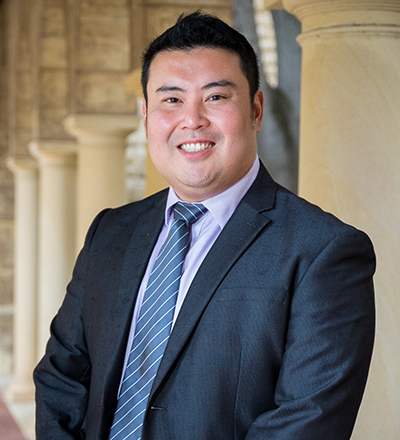 Dr Ian Li has taught across the disciplines of economics, law and health science at Murdoch University and The University of Western Australia. He currently lectures on health economics at UWA’s School of Population and Global Health at both undergraduate and postgraduate level.
Dr Ian Li has taught across the disciplines of economics, law and health science at Murdoch University and The University of Western Australia. He currently lectures on health economics at UWA’s School of Population and Global Health at both undergraduate and postgraduate level.
Ian’s research interests include the applied areas of labour, education and health economics. He has published in high-quality peer-reviewed journals such as the Australian Economic Review and Education Economics. Ian has also been a principal or chief investigator on numerous successful grant applications, and he received a UWA Vice-Chancellor's Research Award in 2015.
Professor Jane Lydon
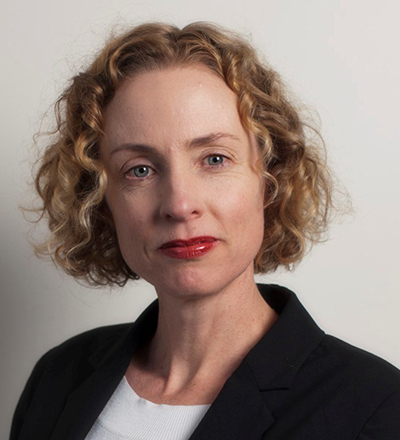 Professor Jane Lydon’s research centres upon Australia’s colonial past and its legacies in the present. Since 1997 she has explored colonial visual cultures, seeking to understand how popular and especially visual culture has shaped ideas and debates about race, identity and culture that persist into the present. In particular, she is concerned with the history of Australia’s engagement with anti-slavery movements, humanitarianism, and ultimately human rights.
Professor Jane Lydon’s research centres upon Australia’s colonial past and its legacies in the present. Since 1997 she has explored colonial visual cultures, seeking to understand how popular and especially visual culture has shaped ideas and debates about race, identity and culture that persist into the present. In particular, she is concerned with the history of Australia’s engagement with anti-slavery movements, humanitarianism, and ultimately human rights.
Dr Paul Maginn
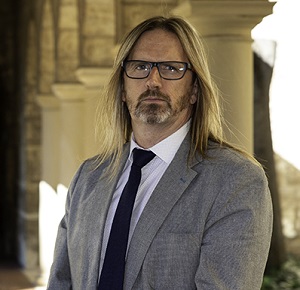 Dr Paul J Maginn is Coordinator of the Master in Urban and Regional Planning program at UWA. Paul’s research interests/expertise include: (i) metropolitan planning and planning reform; (ii) urban regeneration; (iii) urban politics; (iv) local government representation; (iv) social/cultural aspects of suburbia; (iv) geographies and regulation of the sex industry; and (vi) the geographies of porn consumption and production.
Dr Paul J Maginn is Coordinator of the Master in Urban and Regional Planning program at UWA. Paul’s research interests/expertise include: (i) metropolitan planning and planning reform; (ii) urban regeneration; (iii) urban politics; (iv) local government representation; (iv) social/cultural aspects of suburbia; (iv) geographies and regulation of the sex industry; and (vi) the geographies of porn consumption and production.
Paul’s co-edited book, (Sub)Urban Sexscapes, won the 2016 Planning Institute of Australia’s National Award for Cutting Edge Research and Teaching. Paul is Editor-in-Chief of Australia’s leading urban studies journal, Urban Policy and Research, and a founding member of the Urban Broadcast Collective (@UrbanPodcasts). You can find him on Twitter at @Planographer and @SuburbanistaPod.
Dr Fiona McGaughey
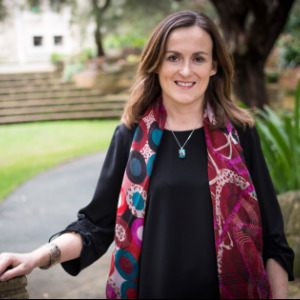 Dr Fiona McGaughey’s key research area is international human rights law. She publishes in Australia and internationally on the role of NGOs in international human rights law, modern slavery, transitional justice, minority rights and disability rights. She is currently co-editing the Edward Elgar Research Handbook on Art and Law and her book, NGOs in International Human Rights Law (Routledge), is forthcoming.
Dr Fiona McGaughey’s key research area is international human rights law. She publishes in Australia and internationally on the role of NGOs in international human rights law, modern slavery, transitional justice, minority rights and disability rights. She is currently co-editing the Edward Elgar Research Handbook on Art and Law and her book, NGOs in International Human Rights Law (Routledge), is forthcoming.
Fiona initially worked in the private sector as a management consultant before moving to semi-state and not-for-profit research and policy roles, which she did for over 10 years in Australia and Ireland. Fiona is co-convenor of the UWA Modern Slavery Research Network and the UWA Not-for-Profit Hub. With colleagues at UWA, Fiona engages in policy submissions and is a regular contributor to The Conversation.
Dr David Mickler
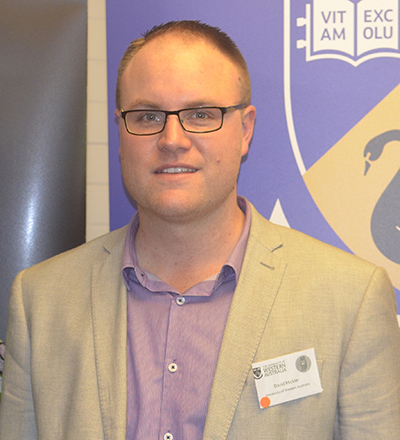 Dr David Mickler is founder and coordinator of the UWA Africa Research Centre (AfREC) and founding co-chair of the Worldwide Universities Network Global Africa Group (WUN GAG). He specialises in African politics, particularly Australia-Africa relations and the role of the African Union in regional security and governance. A former visiting scholar at Addis Ababa University’s Institute for Peace and Security Studies, and a visiting researcher at the African Union Commission in Ethiopia and South Africa, his focus is on the AU’s African Governance Architecture, and Africa’s Sustainable Development Goals.
Dr David Mickler is founder and coordinator of the UWA Africa Research Centre (AfREC) and founding co-chair of the Worldwide Universities Network Global Africa Group (WUN GAG). He specialises in African politics, particularly Australia-Africa relations and the role of the African Union in regional security and governance. A former visiting scholar at Addis Ababa University’s Institute for Peace and Security Studies, and a visiting researcher at the African Union Commission in Ethiopia and South Africa, his focus is on the AU’s African Governance Architecture, and Africa’s Sustainable Development Goals.
Ian Murray
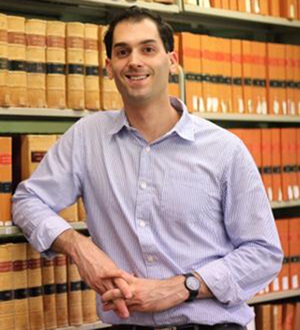 Ian Murray is a lawyer with a research and teaching focus in the areas of resources taxation and the intersection between not-for-profit law, tax and corporate governance. Ian has a decade’s experience as a legal adviser as well as practical experience in the regulatory and governance issues faced by not-for-profits, having been a not-for-profit board member, including chairperson, for over five years.
Ian Murray is a lawyer with a research and teaching focus in the areas of resources taxation and the intersection between not-for-profit law, tax and corporate governance. Ian has a decade’s experience as a legal adviser as well as practical experience in the regulatory and governance issues faced by not-for-profits, having been a not-for-profit board member, including chairperson, for over five years.
His research includes a particular focus on the intergenerational implications of asset accumulation by not-for-profits and the role of not-for-profits within native title asset management structures. Ian regularly contributes to the review and design of not-for-profit legislation as well as the rulings of various government bodies.
Antoine Musu

Antoine Musu is a Lecturer at the UWA Business School. His research focuses on the impact and effectiveness of tourism policy development and strategy for sustainable tourism development and tourism success in regional Western Australia. His research findings have implications on the formulation and implementation of policy and attempts to seek effective ways to measure tourism success. His second area of research is the entrepreneurial ecosystem.
Antoine worked in the Accounting and Business Advisory sector and the role rapidly developed into a long career in the Hotel, Private Club and Leisure industry in European and South East Asian cities, and in Australia. He lectures in Entrepreneurship and Innovation, Commercialisation and Small Business, and is a member of the Founding Board of the Commercialisation Studies Centre.
Professor Lyn Parker
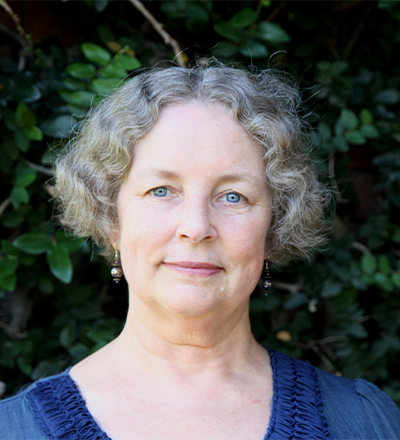 Professor Lyn Parker specialises in the social and cultural anthropology of Indonesia, including environmental education and environmentalism, gender issues, family planning, religion, multicultural education, and, most recently, economic, health and social vulnerabilities.
Professor Parker’s various research teams and projects have been funded mainly by the Australian Research Council, and her research for policy outcomes has included work on the governance of madrasah (Islamic schools) and environmental education.
Professor Lyn Parker specialises in the social and cultural anthropology of Indonesia, including environmental education and environmentalism, gender issues, family planning, religion, multicultural education, and, most recently, economic, health and social vulnerabilities.
Professor Parker’s various research teams and projects have been funded mainly by the Australian Research Council, and her research for policy outcomes has included work on the governance of madrasah (Islamic schools) and environmental education.
Professor Alistair Paterson
 Professor Alistair Paterson is an ARC (Australian Research Council) Future Fellow in archaeology at The University of Western Australia. His research examines the historical archaeology of colonial coastal contact and settlement in Australia’s Northwest and the Indian Ocean.
Alistair leads several ongoing (ARC) projects and has authored several books in the past 10 years. In 2015-2016 Alistair was a visiting researcher at the Institute of Archaeology, University of Oxford. He is past President of the Australian Archaeological Association (2005–2007), past Head of the School of Social Sciences (2013–15), and past Archaeology Discipline Chair (2010–2012).
Professor Alistair Paterson is an ARC (Australian Research Council) Future Fellow in archaeology at The University of Western Australia. His research examines the historical archaeology of colonial coastal contact and settlement in Australia’s Northwest and the Indian Ocean.
Alistair leads several ongoing (ARC) projects and has authored several books in the past 10 years. In 2015-2016 Alistair was a visiting researcher at the Institute of Archaeology, University of Oxford. He is past President of the Australian Archaeological Association (2005–2007), past Head of the School of Social Sciences (2013–15), and past Archaeology Discipline Chair (2010–2012).
Dr Sagi Peari
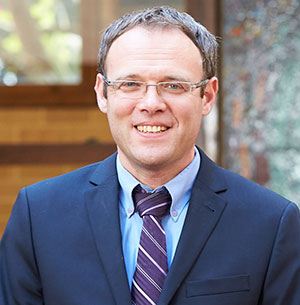 Dr Sagi Peari researches and teaches within private law (contracts, torts and restitution), commercial law, international law and their intersections. His work tackles some of the most pressing questions of contemporary social reality. Consider the emerging elimination of checks as a method of payment.
Dr Sagi Peari researches and teaches within private law (contracts, torts and restitution), commercial law, international law and their intersections. His work tackles some of the most pressing questions of contemporary social reality. Consider the emerging elimination of checks as a method of payment.
Apparently, the contemporary prevailing method of online direct payment is implausible. Where it provides an advantage for business, it is not clear why the consumer needs to pay in advance, before the delivery of the service or product. From this perspective, one can argue in favour of introducing a method of payment in the form of electronic checks which would support a delicate balance between the interests of sellers and buyers.
Professor Anu Rammohan
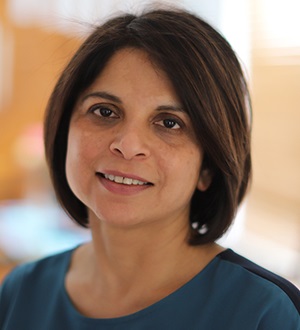 Professor Anu Rammohan is Professor of Economics and the Associate Dean (International) for the Faculty of Arts, Business, Law and Education. Her research expertise is in development, health and agricultural economics, especially maternal- and child-health outcomes, gender discrimination, and food-security issues in South and South East Asia. This research has been published internationally, and has been funded by competitive research grants from the Australian Research Council, DFAT and the Australia-India Institute.
Professor Rammohan is currently serving on the editorial board of the Economic Record, Australia’s top-ranked economics policy journal.
Professor Anu Rammohan is Professor of Economics and the Associate Dean (International) for the Faculty of Arts, Business, Law and Education. Her research expertise is in development, health and agricultural economics, especially maternal- and child-health outcomes, gender discrimination, and food-security issues in South and South East Asia. This research has been published internationally, and has been funded by competitive research grants from the Australian Research Council, DFAT and the Australia-India Institute.
Professor Rammohan is currently serving on the editorial board of the Economic Record, Australia’s top-ranked economics policy journal.
Dr Alka Sabharwal
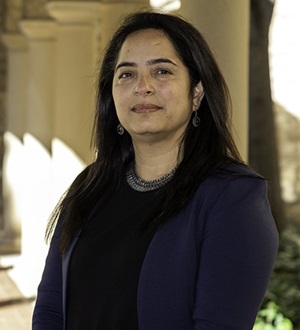 Dr Alka Sabharwal lectures at the School of Social Sciences. Her research focuses on state, bureaucracy and environmental policymaking in India, and she has been published both in Australia and abroad.
Dr Sabharwal has worked for ten years in non-governmental organisations in the Indo-Pacific region, coordinating development-policy research programs at the likes of the International Centre for Integrated Mountain Development (ICIMOD). She is also a member of the South Asian Association of Australia and has been invited to present her research around the world.
Dr Alka Sabharwal lectures at the School of Social Sciences. Her research focuses on state, bureaucracy and environmental policymaking in India, and she has been published both in Australia and abroad.
Dr Sabharwal has worked for ten years in non-governmental organisations in the Indo-Pacific region, coordinating development-policy research programs at the likes of the International Centre for Integrated Mountain Development (ICIMOD). She is also a member of the South Asian Association of Australia and has been invited to present her research around the world.
Professor Krishna Sen
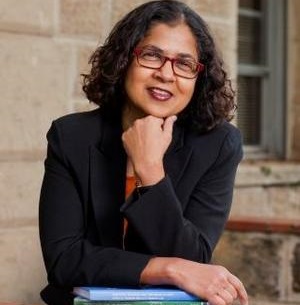 Professor Krishna Sen is Professor Emerita in the School of Social Sciences at the University of Western Australia, a Fellow of the Australian Academy of the Humanities and a member of the Reference Group for the New Colombo Plan, which is appointed and chaired by the Minister of Foreign Affairs.
Professor Krishna Sen is Professor Emerita in the School of Social Sciences at the University of Western Australia, a Fellow of the Australian Academy of the Humanities and a member of the Reference Group for the New Colombo Plan, which is appointed and chaired by the Minister of Foreign Affairs.
Krishna was Dean of the Faculty of Arts at UWA 2009-2017. She is internationally recognised for her work on the media and has written extensively on Indonesia. She is also editor of several monographs and is a member of editorial boards of several international refereed journals.
Krishna grew up and completed her undergraduate education in India and continues to maintain her networks in India.
Associate Professor Jeannette Taylor
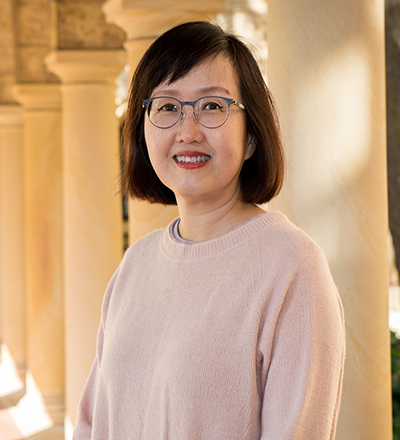 Associate Professor Jeannette Taylor is the chair of the Political Science and International Relations discipline at the School of Social Sciences in UWA. Her expertise lies in public administration and policy, and she has an interest in investigating pressing issues in the public service, particularly with respect to human resources management issues such as employee motivation and productivity.
Associate Professor Jeannette Taylor is the chair of the Political Science and International Relations discipline at the School of Social Sciences in UWA. Her expertise lies in public administration and policy, and she has an interest in investigating pressing issues in the public service, particularly with respect to human resources management issues such as employee motivation and productivity.
Jeannette has conducted applied research on the public sector in Australia and East Asia, particularly in performance management, public service motivation, and recently, public sector corruption. She sits on the editorial boards of various quality international journals in public administration and policy.
Professor Erika Techera
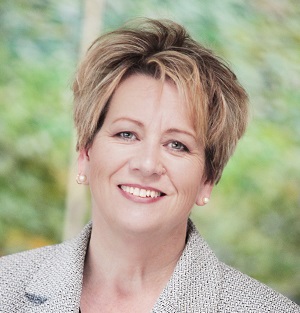 Professor Erika Techera is an international and comparative environmental lawyer with particular emphasis on marine governance in the Indo-Pacific. She has been a consultant on UNEP and FAO projects relating to the environment, fisheries and forestry.
Professor Erika Techera is an international and comparative environmental lawyer with particular emphasis on marine governance in the Indo-Pacific. She has been a consultant on UNEP and FAO projects relating to the environment, fisheries and forestry.
Her research explores the legal frameworks for marine protected areas, marine spatial planning, fisheries, marine pollution and ecotourism, as well as wildlife conservation and management. Much of her research is multidisciplinary, involving both science and social science dimensions. Erika explores the intersection of law and science both in terms of new discoveries requiring law reform and technologies for monitoring and enforcement. She works with social scientists on cultural heritage law and policy, environmental crime and cultural drivers of compliance.
Professor Sandra Thompson
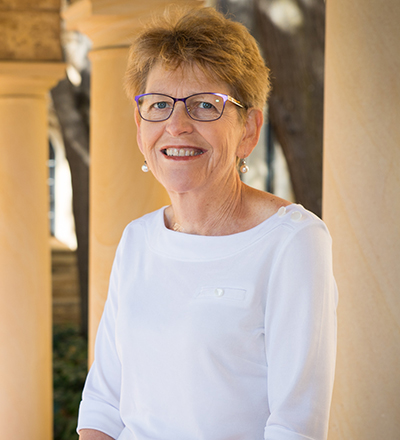 Professor Sandra Thompson is a public health physician with experience in science, health policy and management and research and evaluation expertise. She is Director of the Western Australian Centre for Rural Health (WACRH) and Professor of Rural Health at the University of Western Australia.
Professor Sandra Thompson is a public health physician with experience in science, health policy and management and research and evaluation expertise. She is Director of the Western Australian Centre for Rural Health (WACRH) and Professor of Rural Health at the University of Western Australia.
Sandra has a strong background in communicable disease control, has worked in a variety of settings and jurisdictions in Australia and has wide ranging interests, particularly related to addressing health disparities. Her research interests include rural and Indigenous health, prevention and management of chronic diseases, strengthening primary care through quality improvement, capacity building, developing and strengthening partnerships, attraction/retention of health professionals in rural areas and the research-policy interface. She has authored over 200 peer-reviewed publications and numerous reports.
Associate Professor Andrew R Timming
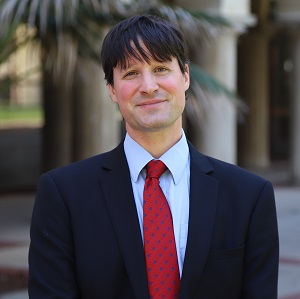 Andrew R Timming is Associate Professor of Human Resource Management at UWA Business School. He holds a PhD from the University of Cambridge. Having worked as a strategy and HR consultant, he has considerable experience in bringing academic insight into real-world problems. He is keen to work with organisations (private sector, public sector and not-for-profit) in the following areas:
Andrew R Timming is Associate Professor of Human Resource Management at UWA Business School. He holds a PhD from the University of Cambridge. Having worked as a strategy and HR consultant, he has considerable experience in bringing academic insight into real-world problems. He is keen to work with organisations (private sector, public sector and not-for-profit) in the following areas:
- health in the workplace, especially mental health and its relationship to bullying
- employee selection systems, especially the design of recruitment methods that eliminate unfair and unconscious bias
- employee voice, especially the ways in which both organisations and societies can benefit from giving workers a greater “say” in organisational decision-making.
Professor Matthew Tonts
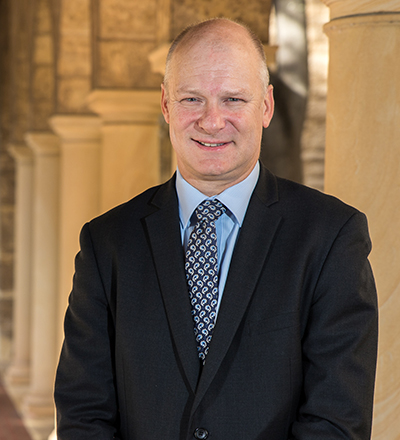 Professor Matthew Tonts is Professor of Geography and Executive Dean of the Faculty of Arts, Business, Law and Education. His research is focussed on matters related to regional development, including economic development, demographic change, and social wellbeing
Matthew has made significant policy contributions in the area of regional workforce planning, economic strategy, and spatial planning. Matthew developed UWA’s research partnership with the Committee for Perth, which focuses on policy issues related to economic competitiveness, liveability, and social change.
Professor Matthew Tonts is Professor of Geography and Executive Dean of the Faculty of Arts, Business, Law and Education. His research is focussed on matters related to regional development, including economic development, demographic change, and social wellbeing
Matthew has made significant policy contributions in the area of regional workforce planning, economic strategy, and spatial planning. Matthew developed UWA’s research partnership with the Committee for Perth, which focuses on policy issues related to economic competitiveness, liveability, and social change.
Professor Petra Tschakert

Professor Tschakert has extensive experience as coordinating lead author (CLA) on the Intergovernmental Panel on Climate Change. She co-led Chapter 5 (Sustainable Development, Poverty Eradication and Reducing Inequalities) and contributed to the Summary for Policy Makers on the IPCC Special Report on Global Warming of 1.5°C. Prior to that, she played a key role in the IPCC’s Fifth Assessment Report, co-leading the chapter on Livelihoods and Poverty.
Professor Samina Yasmeen
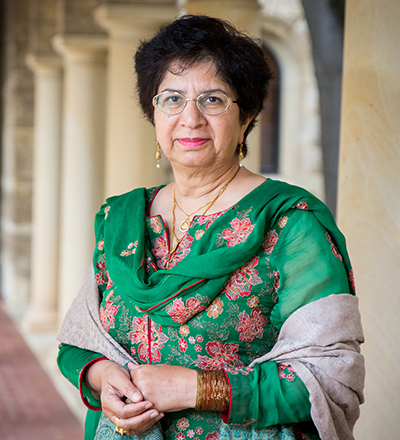 Professor Samina Yasmeen AM is a specialist in political and strategic developments in South Asia (especially Pakistan), Islamisation and its impact on societies in the Indian Ocean region, radicalisation and de-radicalisation strategies, and Muslim minorities in the West (especially Australia).
Professor Samina Yasmeen AM is a specialist in political and strategic developments in South Asia (especially Pakistan), Islamisation and its impact on societies in the Indian Ocean region, radicalisation and de-radicalisation strategies, and Muslim minorities in the West (especially Australia).
Samina is currently a member of the National Consultative Committee of the National Centre of Excellence for Islamic Studies, University of Melbourne; a Vice-President of the Australian Institute for International Affairs (WA Branch), and a member of the Red Cross WA International Humanitarian Law Committee. She was named a Member of the Order of Australia (AM) in June 2014.
Associate Professor Richard Vokes
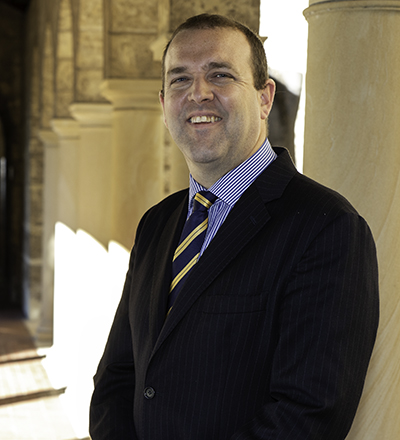 Associate Professor Richard Vokes is Associate Professor of Anthropology and Development at The University of Western Australia, and an elected Research Fellow at the University of Oxford. He holds a PhD in Social Anthropology from Oxford. His research focuses on the African Great Lakes region (especially Uganda, Rwanda and the Democratic Republic of Congo), where he has been working since 1997. He has published extensively, including on: governance, natural resource management and labour regimes, infrastructure, media and the HIV/AIDS epidemic. He is Editor of the Journal of Eastern African Studies, and President of the Australian Anthropological Society.
Associate Professor Richard Vokes is Associate Professor of Anthropology and Development at The University of Western Australia, and an elected Research Fellow at the University of Oxford. He holds a PhD in Social Anthropology from Oxford. His research focuses on the African Great Lakes region (especially Uganda, Rwanda and the Democratic Republic of Congo), where he has been working since 1997. He has published extensively, including on: governance, natural resource management and labour regimes, infrastructure, media and the HIV/AIDS epidemic. He is Editor of the Journal of Eastern African Studies, and President of the Australian Anthropological Society.
Associate Professor Lisa Wood
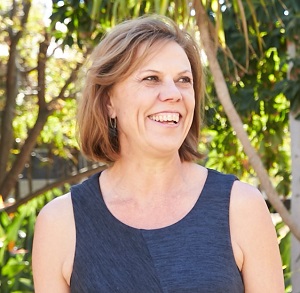 Based in the School of Population and Global Health, and a Senior Research Fellow with the Centre for Social Impact, Associate Professor Lisa Wood is a tireless advocate for research that’s relevant to the real world. With nearly three decades of experience in public health and health promotion, she has worked with academic, government and non-government organisations, and engaged as a public health consultant. Professor Wood’s current research is focused on complex social challenges such as homelessness, domestic violence prevention and closing the gap in Aboriginal wellbeing.
Based in the School of Population and Global Health, and a Senior Research Fellow with the Centre for Social Impact, Associate Professor Lisa Wood is a tireless advocate for research that’s relevant to the real world. With nearly three decades of experience in public health and health promotion, she has worked with academic, government and non-government organisations, and engaged as a public health consultant. Professor Wood’s current research is focused on complex social challenges such as homelessness, domestic violence prevention and closing the gap in Aboriginal wellbeing.
Connect with us
Shamit Saggar, Director
